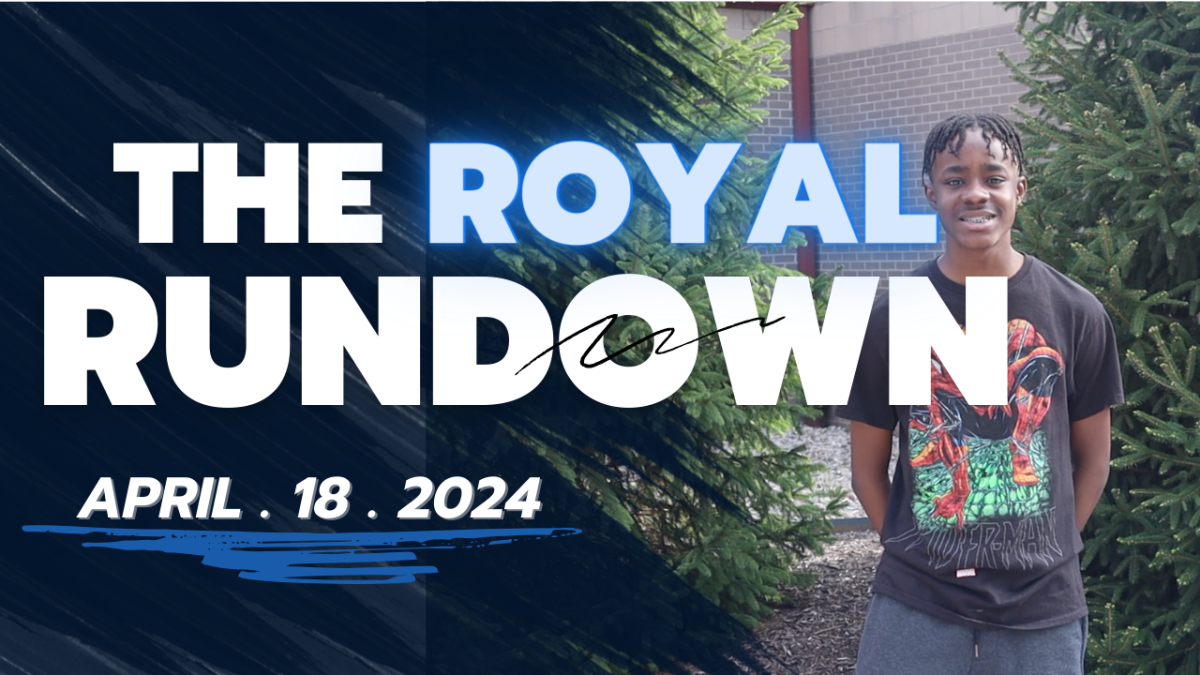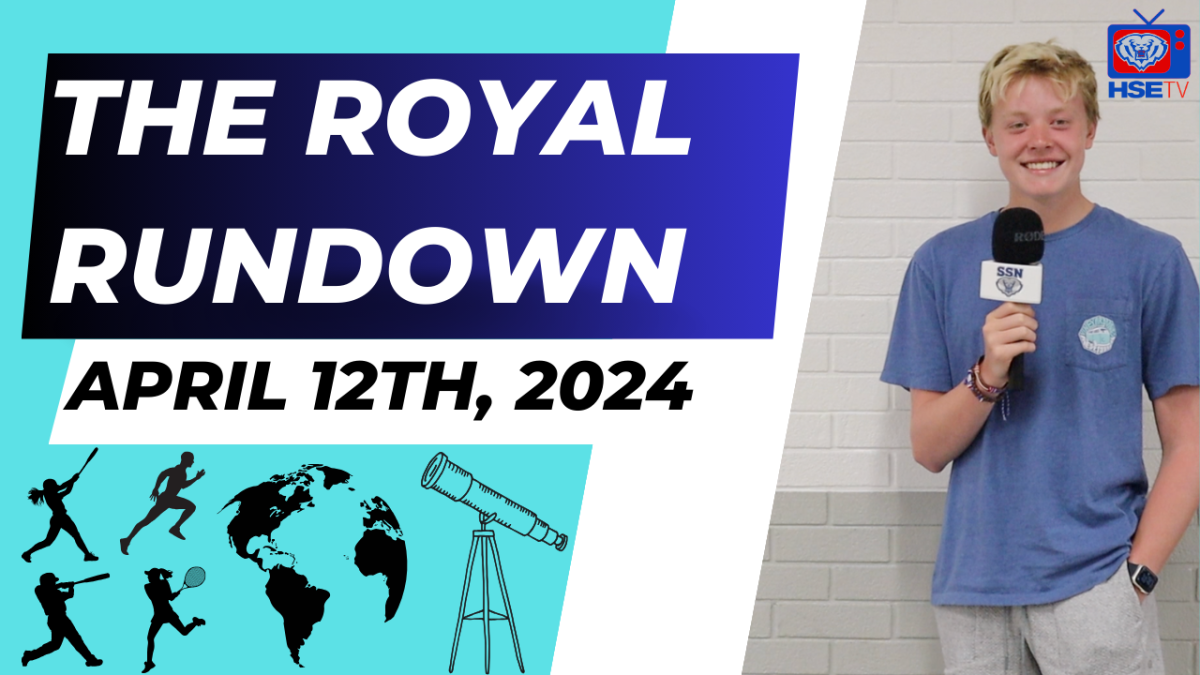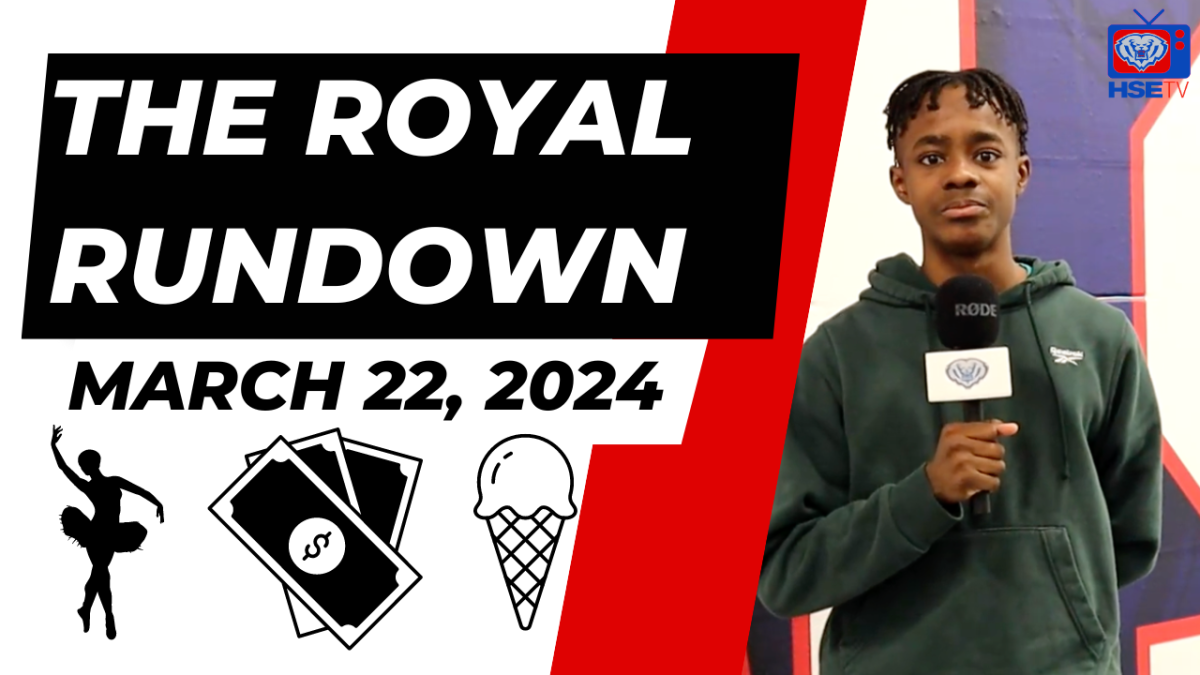
“What do you think is the most prominent threat that the world sees today, or will see in the coming years?”
“The war on terrorism. I think now that you see terrorism affecting pretty much every part of the world, you’re definitely [going to] have to see efforts made collectively by different countries to counter terrorism. An example of that, even recently with the European Union. Now that you’ve seen several countries being attacked, one of the big issues talked about is the exchange of information between the different European countries. Especially when they have open borders. That’s something that they are now concerned about, with people just travelling from country to country. I think there’s going to have to be new systems developed to exchange information amongst countries, help each other out and to get together. Instead of being isolated, they’re going to have to get together.”
“How then do you expect terrorism to progress/regress?”
“I don’t see it as something that is going to go away again unless you get a collaborative effort by countries working toward tackling it. It’s in every country. It’s a different type of warfare. When you have ideological wars based on… You’re not looking at old war anymore. You’re not looking at two enemies that are standing in front of each other where there is a battle and a declared winner. Unfortunately, the mentality of terrorism is to invoke fear and to disrupt peoples’ lives. If you look at the agenda of terrorism, historically, it’s not intended to go away. It’s not intended to go away until they can eliminate a specific ideology that they are upset with. If they feel like a country is meddling in affairs they have been in, like ISIS which stemmed from Iraq, and then into Syria. When they feel that certain countries are getting involved, then they retaliate against those countries. You’ve seen that happen now in France. You’ve seen that happen in the United States. You’ve seen that happen more recently in Belgium. Because there have been forces that are combatting or holding top terrorist leaders. And thus they have retaliated against them.”
“How do you feel the U.N. could work to prevent the furthering of this conflict?”
“I think you’re definitely going to have to get more effort from other Middle Eastern countries to get involved and step up against it. For sure. You’re going to have to get some of the other bigger countries. I think a lot of the Middle Eastern countries are concerned with refugees. Turkey has really struggled because so many refugees were coming into their country. So the U.N…. the whole idea is supposed to be a global alliance. But not everybody within the U.N. sees eye-to-eye as to how you handle certain countries, what type of involvement they feel as if they should have. Even the huge debate in the United States right now is financial. Like, how much money do you spend on sending soldiers overseas to what people feel like is a war that is not theirs? It’s not something I think people can turn their heads to anymore. The U.N., you’ve got to get enough countries on board and on the same page to how they’re going to handle it, with sharing of information and eradicating certain terror cells.”
“I know you talk a lot about how history repeats itself- what do you think is going to happen?”
“The interesting thing here is that terrorism, historically, is not a new thing. Looking at it coming out of religious radicalism, that’s existed since the beginning of time. Since the early formation of religion, you’ve had terrorism, persecution, radicalism. But it’s different now, because the world is different now. You have new types of technology. You have new types of weaponry. You have new types of communication. You’re looking at a whole new thing. Intelligence, military, warfare tactics: completely different. Same themes, different types of technology, which makes it a lot scarier since information can travel so quickly. The ability to access certain types of weapons, much more than they were before. It’s easier for things to get into the hands of people that want to destroy or terrorize or wreak havoc on other people. So, I feel like history, it can certainly repeat itself when people don’t understand the places in which things are happening. Everything that’s going on in the world right now is connected to some sort of conflict that previously occurred in history. I don’t even know if it’s so much as repeating itself than it is a continuation. It’s a continuation if there isn’t a resolution and people do not come out of a conflict with both sides being in an agreement. Both people have to sacrifice something, or you both have to come to the table and walk away feeling like you received something for their country, or both people feel like they could come to a common ground. Unfortunately, there doesn’t seem to be a common ground to be made with terrorism, but it’s rooted in historical conflicts that have already occurred.
It’s a lot to think about. And when you even read accounts from the Taliban, or 9/11 reports, when you have a war that is declared on the West, so basically western ideology, western ways of life. That’s gone on since the beginning of time, too. Where people feel like if you’re trying to put your way of life, or your type of government, or your type economics or your religion on someone else- or in our case, freedom of religion, we’re not ruled by any one religious institution and some countries are, they’re ruled by a religious state. That makes it very conflicting when your ideologies are not the same. So, how do you end a war based on ideology? Then again you had people come to the table during the Cold War. You look at history, there were different ideologies. And eventually, it kind of simmered back down because people came to a common ground and had enough economic and diplomatic agreements that they kind of agreed to disagree. I’m not sure who’d you even be negotiating with in this case. There doesn’t seem to be a negotiation process.”
“Do you think that the world is relatively stable, or in more of a state of crisis right now?”
“I think it’s a lot more serious than some might believe it to be. I was in college when 9/11 happened and it changed everyone’s perception of what the world looked like. Over time, when people start going back to their way of life, they become more comfortable. You start seeing it as something that won’t touch you. Won’t affect you. But the United States, geographically, we are not next door to some of the countries that are fighting civil wars, areas where radical terrorists or dictators are coming in, to places that are war torn. We’re not next door to it. So we feel very isolated from it. But we’re not. [Though] our intelligence has changed significantly since 9/11. The number of agencies and commissions and laws that have been passed to [increase] our intelligence, [they have changed] how we’ve combined our intelligence, sharing of information; [we are] trying to root out things prior to them happening. It’s not that we were weak, it’s that we didn’t have an awareness, I don’t think, collectively. We were wide open for [someone] to just come in. It’s changed airport security significantly, because that’s how 9/11 took place. Hijacking of airplanes. So security is completely different. That’s very conflicting in the United States because some people feel that it’s too much. Some people say better safe than sorry. So even within the United States, with our own freedoms and beliefs on privacy, and investigation and your own space, there are different opinions of whether the government should play more of a role in your protection by allowing them to invade your privacy or space and kind of be an open book, for sake of the common good. So, it’s tricky because even Americans aren’t on the same page with it. And I don’t think on a whole people understand history enough, and understand the whole rooted causes behind why things used to happen. At one point, we were allied with Iraq and Saddam Hussein. And then we bought against him. More than twice. The Persian Gulf War, and then the war in Iraq and 9/11. And that’s where ISIS formed, and they felt as if we overstepped. We were there trying to rebuild Iraq, and we meddled. It’s really complex, even beyond that. Afghanistan, where the Taliban was formed. The Taliban was the government in Afghanistan. At one point, we were allied with them. We allied with them to fight Russia in the Cold War. We gave them weapons. We gave Iraq our technology, our weaponry, when we were allied with Saddam Hussein. We have aided people that have then later turned and felt as if we overstepped, and they have our resources and technologies and use it to fight against us. And thus knew our weaknesses, too. Or our strengths. So, people don’t understand the conflict in Iran. Another one- major conflict on the building of nuclear weapons. North Korea- we have been imbedded in the Cold War era with all of those countries and did not really leave on good terms with any of [them]. The Cold War isn’t really done, because you still have these debates over nuclear weapons. If you’re apart of the United Nations, you’re supposed to bring to the table what your weapons are. [Everyone is] supposed to know what your nuclear programs are, what you’re spending. Countries that are not part of the United Nations, like North Korea, they’re not going to tell you what they’re working on. Or they will but they’re not going to let you regulate what kind of weapons they have. What do you do?”
“How do you think the world will look in ten years?”
“My belief is good always triumphs over evil. And when people get pushed to a point where their own safety and their own livelihood is questioned, in any country, you see people rally together. I think that in the wake of the most recent terrorist attacks, you’re going to see people handle this differently. It’s now spreading into parts of western Europe, which are directly allied with the United States. There is no way you are not going to see more involvement. It’s my hope that you’re going to see a safer world. Unfortunately, some people say that in history, things get worse before they get better. That tends to be the trend. It’s my hope that this creates an awareness that it’s a global thing. Everything in the world is connected at this point. You have to figure out a way to work together [against] these issues. But every country in the history of the world has its own self-interest. That’s the problem. And so getting everyone on the same page is the problem in history. Everyone wants what’s best for their country. You see some countries, China, for example, try to remove themselves historically from certain events to protect their own economy. The United States… I think people have the wrong perception of us. This is me [coming] from a historical protection. When you study our history of war, we’ve made some mistakes in what we’ve [chosen to get] involved in. But at the same time, historically, we’ve been more of a defensive country, in my opinion, militarily. We, when provoked, we might indirectly have been involved with things indirectly to make money, most countries do, but, you know. 9/11 brought us into a war I don’t think we ever knew we were going to be involved in. The events that led up to it. It’s just so complex. I’m hoping it will be a safer world, because people will come together. That’s my hope.”











